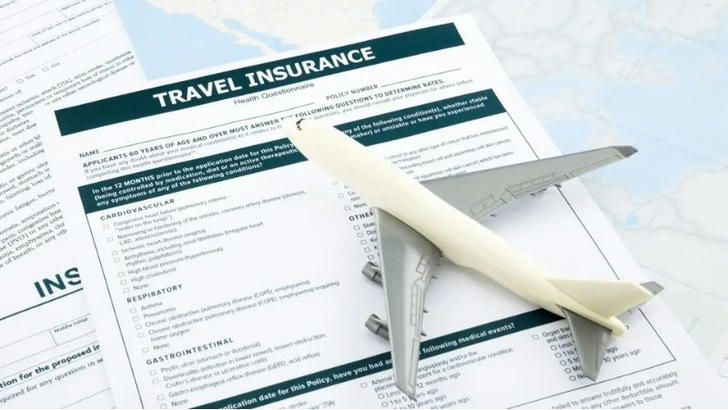Navigating Travel Insurance for Cancer Patients: Comprehensive Guide and Quotes
Giving up on yourself after being diagnosed with cancer? Give up seeing the world because of cancer? No, traveling after a cancer diagnosis can be both exciting and challenging. When you have the right travel insurance to protect your trip, everything will no longer be a problem. This guide will show you how to choose the right travel insurance within your budget to give you a perfect travel experience.

Understanding Travel Insurance for Cancer Patients
Securing travel insurance with a cancer diagnosis requires transparency and thorough research. Insurers assess risk based on various factors, including:
Cancer Type and Stage: Different cancers and their progression levels influence premium costs.
Treatment Status: Ongoing treatments may affect eligibility and pricing.
Medical History: Previous treatments, surgeries, and current medications are considered.
Travel Details: Destination, duration, and planned activities impact coverage options.
Specialist insurers often provide more accommodating policies for individuals with cancer, considering the nuances of each case.
Sample Travel Insurance Quotes by Cancer Type and Stage
While premiums vary based on individual circumstances, the following are illustrative examples:
Breast Cancer
Stage I (Remission): Approximately £80–£120 for a single trip to Europe.
Stage II (Post-treatment): Around £150–£200.
Stage III (Active Treatment): May exceed £300; some insurers might impose exclusions.
Prostate Cancer
Early Stage (Remission): Typically £70–£110.
Advanced Stage (Ongoing Treatment): Approximately £180–£250.
Lung Cancer
Stage I–II (Remission): Estimated £120–£180.
Stage III–IV (Active Treatment): Premiums can range from £250 to over £400; coverage may be limited.
Colorectal Cancer
Stage I (Remission): Around £90–£130.
Stage II–III (Post-treatment): Approximately £160–£220.
Stage IV (Active Treatment): Premiums may exceed £300; some policies might exclude cancer-related claims.
The above premium examples can be used as a reference when purchasing travel insurance. The actual premium depends on personal health assessment and insurance company policy.
Benefits of Cancer-Specific Travel Insurance
Opting for travel insurance that acknowledges a cancer diagnosis offers several advantages:
Comprehensive Medical Coverage: Ensures access to necessary treatments abroad without incurring prohibitive costs.
Trip Cancellation Protection: Covers non-refundable expenses if travel plans change due to health reasons.
Peace of Mind: Provides assurance, allowing travelers to focus on enjoying their journey.
Tips for Selecting Appropriate Travel Insurance
Full Disclosure: Always inform insurers about your medical history, including diagnosis, treatments, and medications. Non-disclosure can lead to claim denials.
Consult Specialists: Engage with insurers experienced in covering pre-existing conditions. They can offer tailored policies that suit individual needs.
Compare Policies: Utilize comparison tools and consult multiple providers to find the best coverage at a reasonable price.
Understand Policy Details: Scrutinize terms and conditions, focusing on coverage limits, exclusions, and claim procedures.
Seek Medical Clearance: Obtain a 'fit to travel' certificate from your healthcare provider, especially if undergoing recent treatments.
Real life examples
Case Study 1: Janet, 58, Breast Cancer Survivor in Italy
Janet, a 58-year-old from Manchester, had recently completed treatment for Stage II breast cancer. She booked a trip to Florence and chose cancer-specific travel insurance that covered her full medical history.
During the trip, she experienced chest tightness. Thanks to her insurance, she was quickly taken to a private clinic, where it was confirmed as a medication side effect—not a recurrence. The policy covered the ambulance, treatment, and hotel extension. Janet fully recovered and continued her holiday without any complications or added stress.
Case Study 2: Thomas, 65, Prostate Cancer Patient on a Cruise
Thomas, 65, was on active surveillance for early-stage prostate cancer when he set off on a Baltic cruise. He chose insurance tailored for cancer patients, including medical evacuation.
Halfway through, he experienced urinary retention. The insurer arranged a hospital transfer in Helsinki, covered the emergency treatment, and helped him rejoin the cruise. His condition remained stable, and the rest of his trip went smoothly.
Illness cannot stop you from seeing the world, but it is necessary to be well prepared. Cancer patients need to plan carefully when traveling, especially in terms of insurance. Understand the complexity of insurance policies, seek professional protection and disclose your medical history. Only with the protection of travel insurance can you start your journey safely and make your journey more perfect.
View detailed cancer travel insurance purchase requirements
